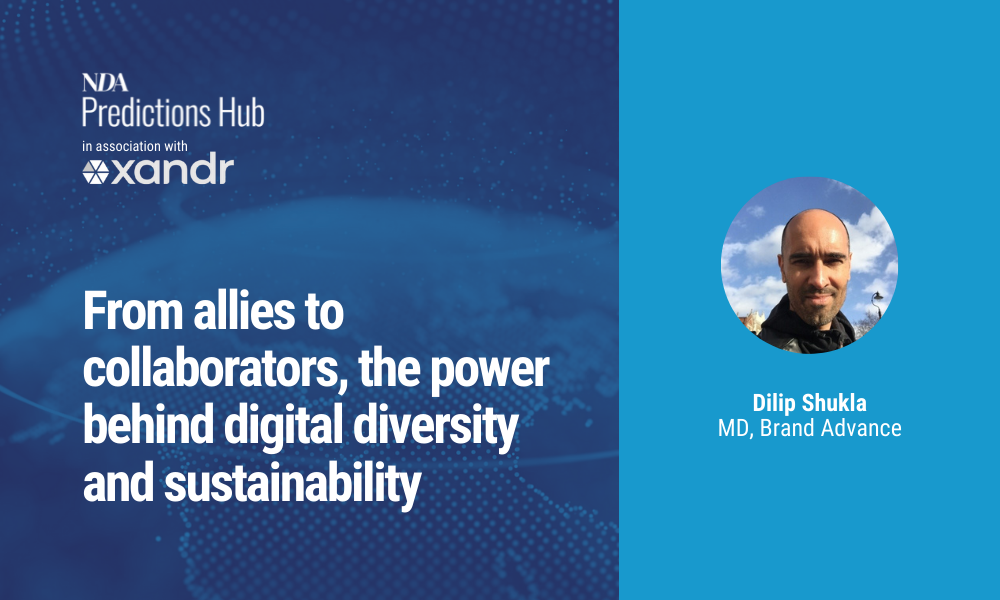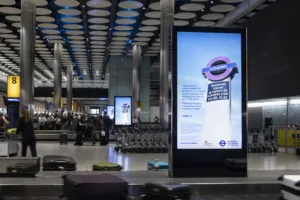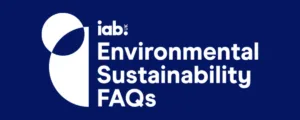NDA, in partnership with Xandr, is collecting the views of some of our industry’s leading figures for their predictions on 2022 and beyond. Next up is Dilip Shukla, MD, Brand Advance.
What are the biggest challenges for the digital advertising industry when it comes to diversity and sustainability?
The biggest challenge? We move too slowly as an industry. When 50% + of people identify as having one characteristic of diversity or more; when we all now know that our planet is in a negative spiral of the ecosystem and yet we still employ, spend and communicate as though we don’t know these things, that is quite a challenge.
The data coming from many of the most authoritative sources in the world today (Harvard Business School, Accenture, McKinsey, Unilever and many more) tells us that those companies that integrally support diversity and sustainability right through to their marketing budgets, are growing faster, are more profitable and are delivering higher share prices than their defined competitors. And yet it’s actually pretty difficult to spend towards these two vital areas. I’ll expand on that for the next question.
How will diversity in media planning evolve in 2022?
1) We will start to measure the right things.
Basically if you aren’t measuring an ROI improvement because you recognise, include and support diversity and sustainability, you are measuring the wrong things. Additionally, who do we really help by buying media with CPM as the core performance indicator? The answer is, nobody that we want to help, including ourselves as an industry.
2) We will plan from a perspective of inclusion. Inclusive teams and unifying propositions and plans. Most marketing and media planning is a process of exclusion built on exclusive information and measurements processed by exclusive teams. That is changing and the teams that win will fearlessly develop the new processes around context, attention and culture that will result in unifying ideas and plans.
Yes we are all different but we do also have many things in common and we are all actually connected; there is a big win here for those that recognise the unifying points of diversity and sustainability
3) We will flat out start putting the money where our talk is. Yes, simple as that, for all the reasons stated previously. if you spend in this direction you will win, now the question is this – are you waiting for someone to prove this to you beyond a doubt or are you already getting an edge on the ones who are waiting? What does this mean? It means spend towards media and communities that are demonstrably owned, run and built by and for diversity and sustainability. I know we’re not supposed to say that the industry spends what, 70% of revenues to Facebook and Google but er, really?
4) Just a quick one, we will sort Brand Safety, it really is a terrible mess at the moment.
What about across the industry itself?
Diverse talent, sustainable practices. Spending towards those areas. I feel very optimistic about the industry’s capabilities, the many people I meet want to create change and we will see that the benefits to business, along with the benefits to society and the individual will lead to an unstoppable momentum in these areas.
What are is your company’s proudest achievement in 2021 and how will this help shape 2022?
It’s simple really, we are sending millions of pounds, dollars, euros etc to diverse communities around the world, through the publishers built for those communities by those communities. That is going to help shape 2022 into a year where there are less obstacles and more benefits to recognising, including and supporting diversity and where those communities will be treated more equally by the world as a whole.
Having said that it seems daft to talk about technology but one of the most powerful routes we will take to get there is to further build our tool Sentiment that delivers contextual inclusion and reach of diverse communities. Anyone wishing for the old days of the cookie can calmly let go and say “100% addressable and privacy-first reach of clearly understood communities based on interests, issues and affiliations?”. Yes please.









